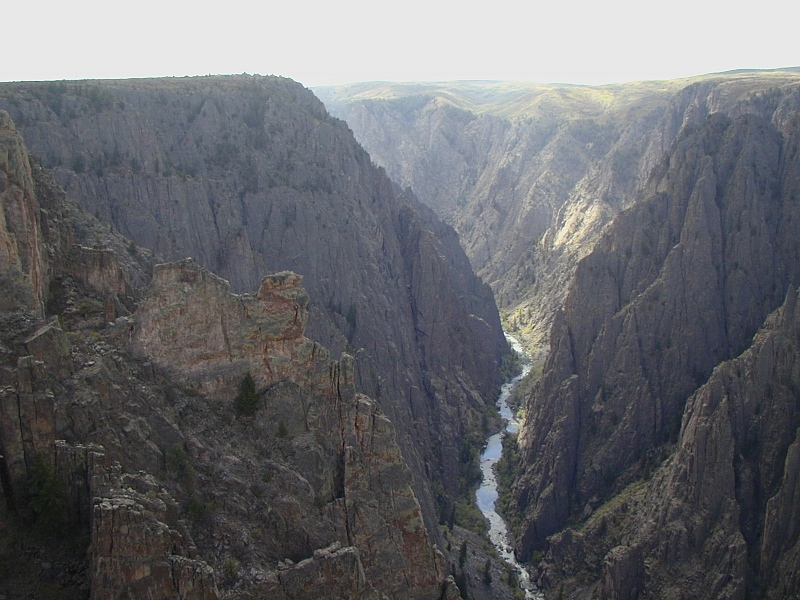
(Photo from, CliffShade)
Good news echoed through the walls of Gunnison’s Black Canyon as federal officials agreed to protect river flows through the park. Natural Energy Resources Co. wanted to build a reservoir near Crested Butte to store up to 1.2 million acre-feet from the headwaters of the Gunnison River to be piped to Arapahoe County, but the Supreme Court ruled that this issue had already been settled in earlier court rulings against them. As The Associated Press reports,
"Agreements between the federal government and Colorado that environmentalists said could have harmed fish and other wildlife dependent on the water flowing though the Black Canyon of the Gunnison National Park were thrown out by a federal judge Wednesday.
Environmentalists argued in a lawsuit that the Gunnison River flowing through the spectacular gorges of the 14-mile long park needed both a minimum and a peak flow in order to maintain its ecosystem.
Agreements reached by the U.S. Department of the Interior and the state in 2003 established a minimum flow for the river through the park but peak flows above that could be diverted to other uses, such as to farming.
"The court acknowledged that the deal would have decimated the resources of that park," said Drew Peternell, attorney for Trout Unlimited, one of seven environmental groups that filed the lawsuit.
In defending the agreements, state and federal officials said they would protect the park and preserve the river for other uses.
U.S. Department of Interior officials said the agreements balanced the need of the park with the federal Aspinall Unit, a three dam hydropower and water storage system above the canyon.
Doing that however meant the government agreed to give up its senior water right, established in 1933 when the canyon was deemed a national monument, and allow the river to be diverted by farmers, ranchers, cities and utilities with recent claims.
In his 32-page ruling, U.S. District Judge Clarence Brimmer wrote that giving up the canyon’s older water rights was "nonsensical" and disagreed with the government’s argument.
"The agreements were not to ensure the protection of the canyon because the Black Canyon was already protected," Brimmer wrote.
"The court accordingly finds that it was arbitrary and capricious and an abuse of discretion to enter into the agreements and relinquish a 1933 priority ," Brimmer said.
The case now heads back to the National Park Service, a defendant in the lawsuit, for further proceedings."
Click here for the full story from The Associated Press
This tip comes from Inspired Economy reader, Dillon Downs. Thank you Dillon!




